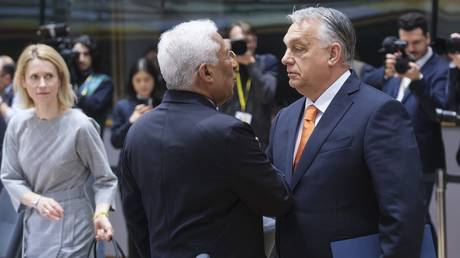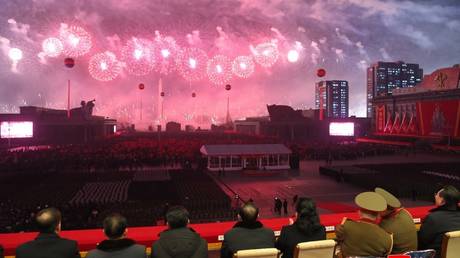
With the lives of hostages at stake, the Israeli government is keeping quiet on the operation
The Israeli military has begun pumping seawater into Hamas’ underground tunnel network beneath Gaza, the Wall Street Journal has reported. Israeli officials have refused to comment on the alleged operation, which could endanger the lives of more than 100 hostages and contaminate the strip’s water supply.
Israeli forces started experimenting with flooding the tunnels some time after transporting powerful pumps into Gaza last month, the newspaper reported on Tuesday, citing US officials. With the tunnels stretching for hundreds of miles beneath Gaza, fully flooding the warren of passageways and bunkers is expected to take several weeks, the report claimed.
A spokesperson for Israeli Defense Minister Yoav Gallant refused to comment, stating that any military operations involving the tunnels are classified. However, Chief of Staff Herzi Halevi said last week that flooding the subterranean network was “a good idea, but I won’t comment on its specifics.”
The idea is a contentious one in Israel. Relatives of the roughly 140 hostages still in Hamas’ captivity fear that flooding the tunnels will endanger their loved ones, some of whom are believed to be held in the passages. In meetings with Israeli Prime Minister Benjamin Netanyahu, freed hostages complained that the flooding would be a death sentence for those left behind, according to audio recordings published by Hebrew news site Ynet last week.
Questioned about the flooding operation, US President Joe Biden claimed on Tuesday that he has heard “assertions” that “there’s no hostages in any of these tunnels. But I don’t know that for a fact.”
However, US officials have raised concerns that pumping large amounts of seawater underground could contaminate Gaza’s limited freshwater resources. Prior to the conflict with Israel, around 90% of the enclave’s drinking water came from groundwater wells, according to the Palestinian Water Authority. The remainder came from local desalination and wastewater plants – which cannot operate without fuel – as well as Israeli pipelines, which Israel shut off immediately after Hamas’ October 7 attack.
READ MORE: Israel used US-made white phosphorus munitions in Lebanon attack – WaPo
From Israel’s perspective, filling the tunnels with water is preferable to sending troops beneath the ground to face armed militants and booby traps. While Israeli forces control much of Gaza City in the north of the strip and some of Khan Younis in the south, “the problem is Hamas is going underground,” former Israeli military intelligence chief Amos Yadlin told the Wall Street Journal.
Even in the areas that Israel has taken, “the subterranean [theater]continues to be the challenge,” retired Israeli colonel Miri Eisin told the newspaper.




